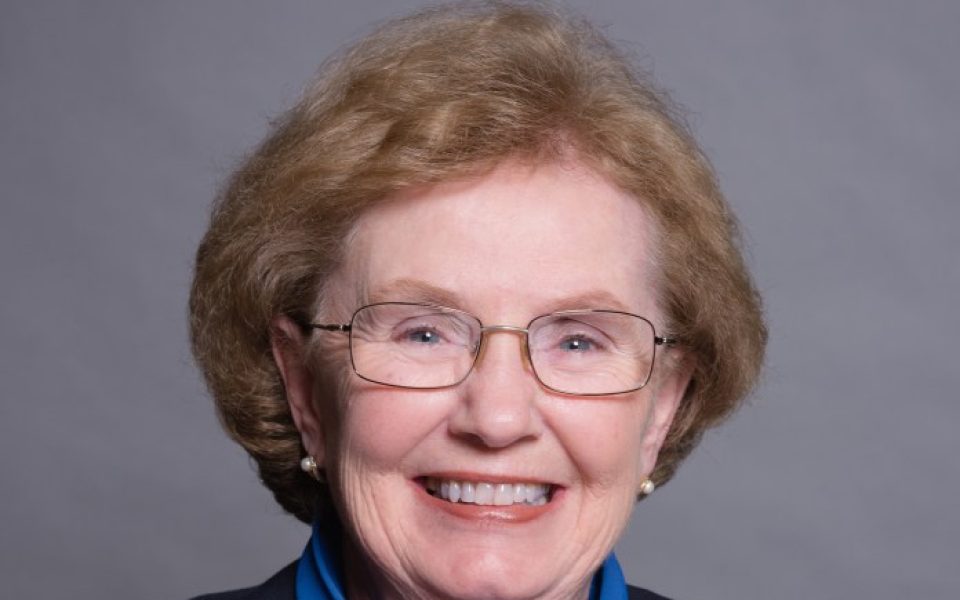Considering the content of Guilford County School Board member Anita Sharpe’s email to a school employee, it’s easy to understand why she wouldn’t want the public to know what she’s up to. But it’s also absolutely obvious why it’s against the law to conceal it: We the people have the right to know what the government is doing in our name and with our tax dollars.
It comes down to power.
“Unfortunately, we have the four votes to fire the superintendent but cannot seem to get the 5th vote,” Sharpe mused to a school employee in a Sept. 7 email from a personal account.
And just to underscore the sensitivity of the subject, Sharpe prefaced her plot to oust Superintendent Sharon Contreras with this caveat: “I encourage you to delete this email on your end and I intend to delete it on mine. (Against the law for me but these are extenuating times).”
The context of Sharpe’s email was a response to an email from a school employee expressing disappointment about being passed over for a promotion.
“I am so sorry that you experienced this but I am not surprised,” Sharpe wrote. “Hang in there. The adm is burning bridges and at some point soon, I expect they will burn the last one and we will be free of this tyranny.”
The particular law Sharpe was intending to break is NCGS § 132-3, which states, “No public official may destroy, sell, loan, or otherwise dispose of any public record,” except in limited circumstances spelled out by statute and with the consent of the state Department of Natural and Cultural Resources. The law goes on to say: “Whoever unlawfully removes a public record from the office where it is usually kept, or alters, defaces, mutilates or destroys it shall be guilty of a Class 3 misdemeanor and upon conviction only fined not less than $10 more nor than $500.”
First of all, who does this? Anyone with average intelligence knows that the first rule of crime is to avoid acknowledging intent so as to provide plausible deniability when you get caught and have to plead that you didn’t know any better. But then what happens if the person you’re soliciting into your conspiracy doesn’t go along and you get exposed? (In this case, Sharpe apparently did not follow her own advice because the email turned up in a public records request.)
The more important revelation of the email is Sharpe’s casual rationalization of violating public records law in “extenuating times.” It’s like someone demonstrating scruples by refraining from the larcenous act of borrowing his brother-in-law’s weed-whacker without asking, but making an exception for bank robbery because the stakes are a lot higher.
Jonathan Jones, director of the Sunshine Center of the NC Open Government Coalition, was astounded when I told him about Sharpe’s admission.
“Nobody ever gets charged with the misdemeanor crime of destroying public records,” he said. “This is the rare instance where I can imagine it happening. It’s just so egregious if the email is acknowledging the law is telling you not to do this, and then you say you’re going to go ahead and do that very thing.”
In the four-and-a-half years that he has run the Sunshine Center, Jones said he had never seen anything like it.
Unfortunately, North Carolina doesn’t place a high priority on upholding the law protecting citizens’ right to know what their government up to. Had Sharpe followed through on her intention to delete the email expressing her desire to fire Superintendent Contreras — there are a couple critical gaps between getting caught and getting charged. Although the state Attorney General’s office has an open government unit, Jones said it’s used more as an advisory body to help government agencies comply with the law than as an ombudsman for the public. Public records violations are typically referred to the district attorney for prosecution, but unlike in other states, district attorneys don’t have much investigative function.
The coalition of parents, pastors and advocates who called out Sharpe on Sept. 28 have asked for her resignation. The revelation of intent to violate public records law is definitely a serious betrayal of trust, and sets a bad example for other elected officials because she casually displayed contempt for the public’s right to know what local government is doing in our name. That should not be allowed to stand.
But I would settle for an apology. Sharpe — who to date has not addressed the controversy, including not returning messages from Triad City Beat — should forthrightly address the people of Guilford County from the dais at the next school board meeting. She should acknowledge that she was wrong to contemplate destroying a public record, reassure us that she recognizes the importance of open government, and pledge to always uphold the law.
If she can’t find it in herself to say those words, then Sharpe’s colleagues on the school board should call a vote asking for her resignation. They should also pass a resolution affirming respect for North Carolina’s public records law and pledging to uphold it.
Join the First Amendment Society, a membership that goes directly to funding TCB‘s newsroom.
We believe that reporting can save the world.
The TCB First Amendment Society recognizes the vital role of a free, unfettered press with a bundling of local experiences designed to build community, and unique engagements with our newsroom that will help you understand, and shape, local journalism’s critical role in uplifting the people in our cities.
All revenue goes directly into the newsroom as reporters’ salaries and freelance commissions.


I believe Ms. Sharpe should resign as she is being divisive and is not serving in good character of her role. An apology would not be enough. School boards are suppose to know the laws that govern their actions. She served on the school board before.